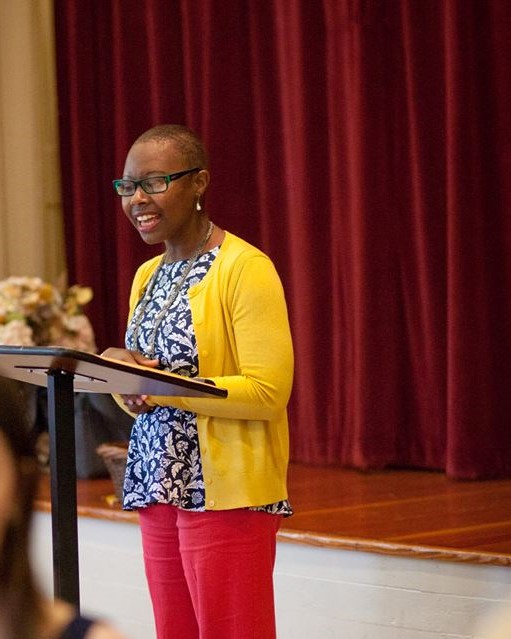Take a look at this photograph and listen to this song by Sweet Honey in the Rock. Listen once, and then listen again. And then again, and again, and again until it lives inside of you. Listen until their humming wakes and shakes up your cells. Listen until you know where one woman takes her breath and the next woman takes her own. Listen until you hear the splashing, the desperate moaning, the bidding of God to enter the water with your kinfolk. Listen until you feel the cool water soaking into your skin. Listen until you can’t tell if it’s 2020, 1920, or 1820. Listen as time slips through your fingers and you recognize the woman by your side as your grandmother’s mother and the women in front of you as your children’s children. Listen until you hear your sisters, aunties, and cousins all troubling some water. Listen until you recognize one of the harmonizing voices as your own.
This was an invitation I extended to myself, and I open it up to you. But, not as some thought experiment in theological understanding about freedom, or social justice, or premature racial reconciliation. No, my invitation requests that we release our mind’s grasp on our bodies and we feel what racial healing means. When the Sweet Honey in the Rock singers coax me into the depths of God’s water with this spiritual, I see my father’s grandmother. Lil Mama was a complicated woman born in 1898 who was a healer and put the fear of God into grown men. As a licensed practical nurse in Charlotte, North Carolina, she tended to both her neighbors and rich white clientele alike. She carried a knife for protection, raised her three grandchildren, took in any family member that needed a place to stay, and deeply distrusted white folk. Above all else, she was determined to protect the present and future lives of her grandchildren. Shouldering the role of family matriarch, it could not have been easy figuring out how to balance joy within the struggles. Yet in the midst of it all, she kept—with the reluctant help of my father and his siblings—a beautiful garden with flowers, fruit trees, and vegetables. My dad tells tales of venturing into the woods with Lil Mama and his brother to gather cuttings for their enviable front yard. As I collect more stories, her presence grows into mythic proportions well beyond her 4’11” stature.
She’s there, in the water.
The spiritual says that “God’s gonna trouble the water,” but we are still called to wade into it. The women sing, “Wade…wade in the water, children” almost like a phantom’s shadow luring children into danger. Why should we wade in the water if God only intends to bring trouble? Would it not make sense to stay as far away as possible from the water? But the song goes on to say that, “They must be the children of the Israelites…They must be the children that Moses led.” So, these must be waters that carry us to something new and different on the other side. If these are the same waters that Moses led us through (grumbling and complaining included), then it must mean that freedom, liberation, and healing await us.
Just get in the water and look around, the singers call. In the water, there are holy mischief makers, pot-stirrers, and smack talkers. These women may be the unruly shouting type of folk, splashing around looking and sounding like the very things you don’t want, but need, to hear. Things that might sound like, “Protect Black girls and women” while you watch SNL (scroll to 2:15) or whistleblowing from a detention center. Trouble may look like covering the streets with blankets and pillows for a sleeping demonstration in memory of Breonna Taylor. Trouble may come by way of saying, “No more” to grind culture and resting like our predecessors never could. Troubled waters may look like Lil Mama holding on to her imagination that showed her a future with her grandchildren thriving in it. All of these women and their ways as vehicles for God’s troubling, in the water.
As we continue to walk our path of community racial healing, I pray that we wade into the water and let God trouble us, because trouble also looks like decolonizing our selves and our classrooms. Trouble can be embodied through our teaching and preaching on the church’s racialized legacy of oppression. It means holding ourselves accountable to each other and the most vulnerable among us.
The invitation stands. Listen to the song over again and wade on in the water.
This fall, the Sowing Holy Questions blog will focus on issues of racial healing. Writers will reflect on what has been done, what change ought to happen, and offer visions for healing in our communities.


